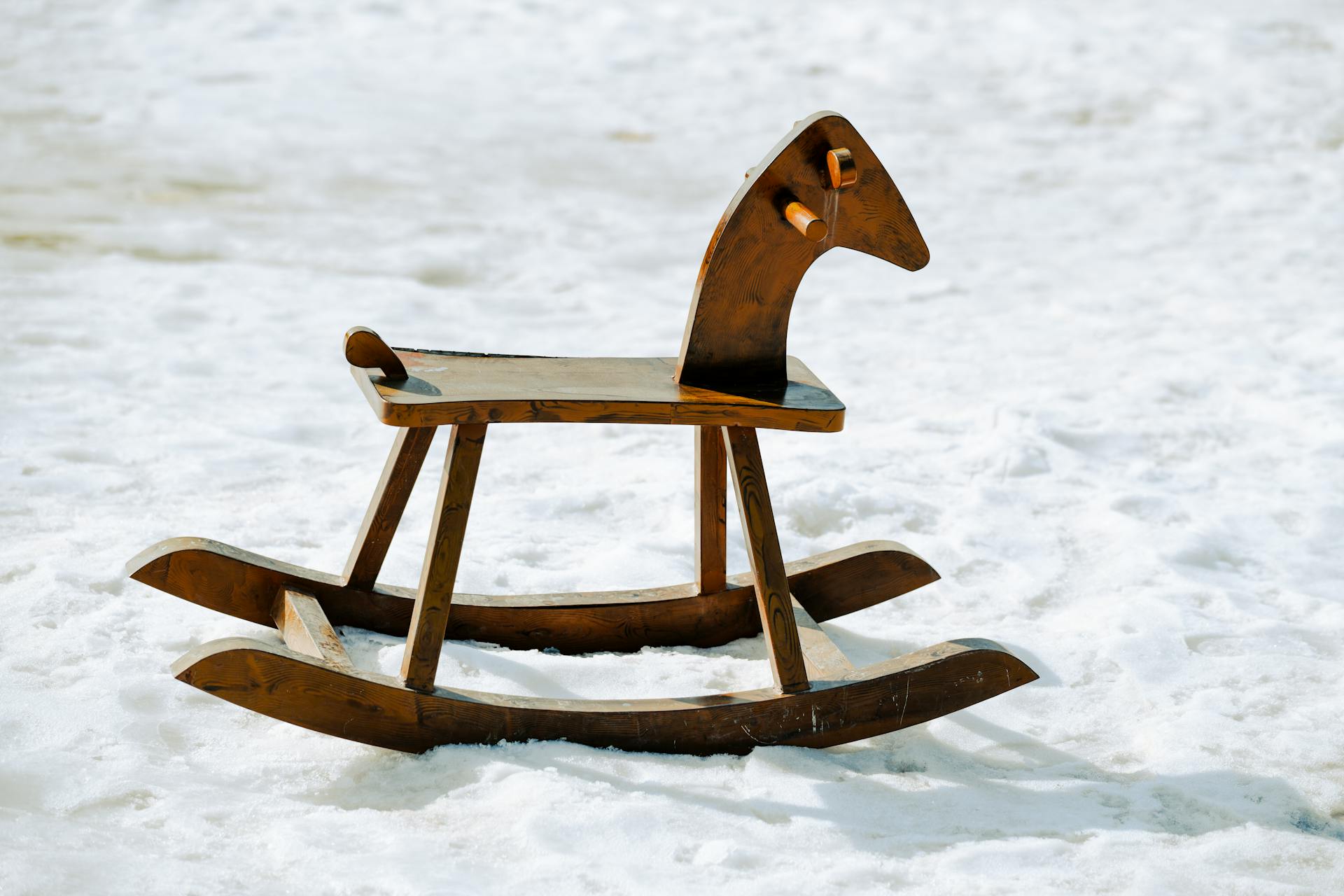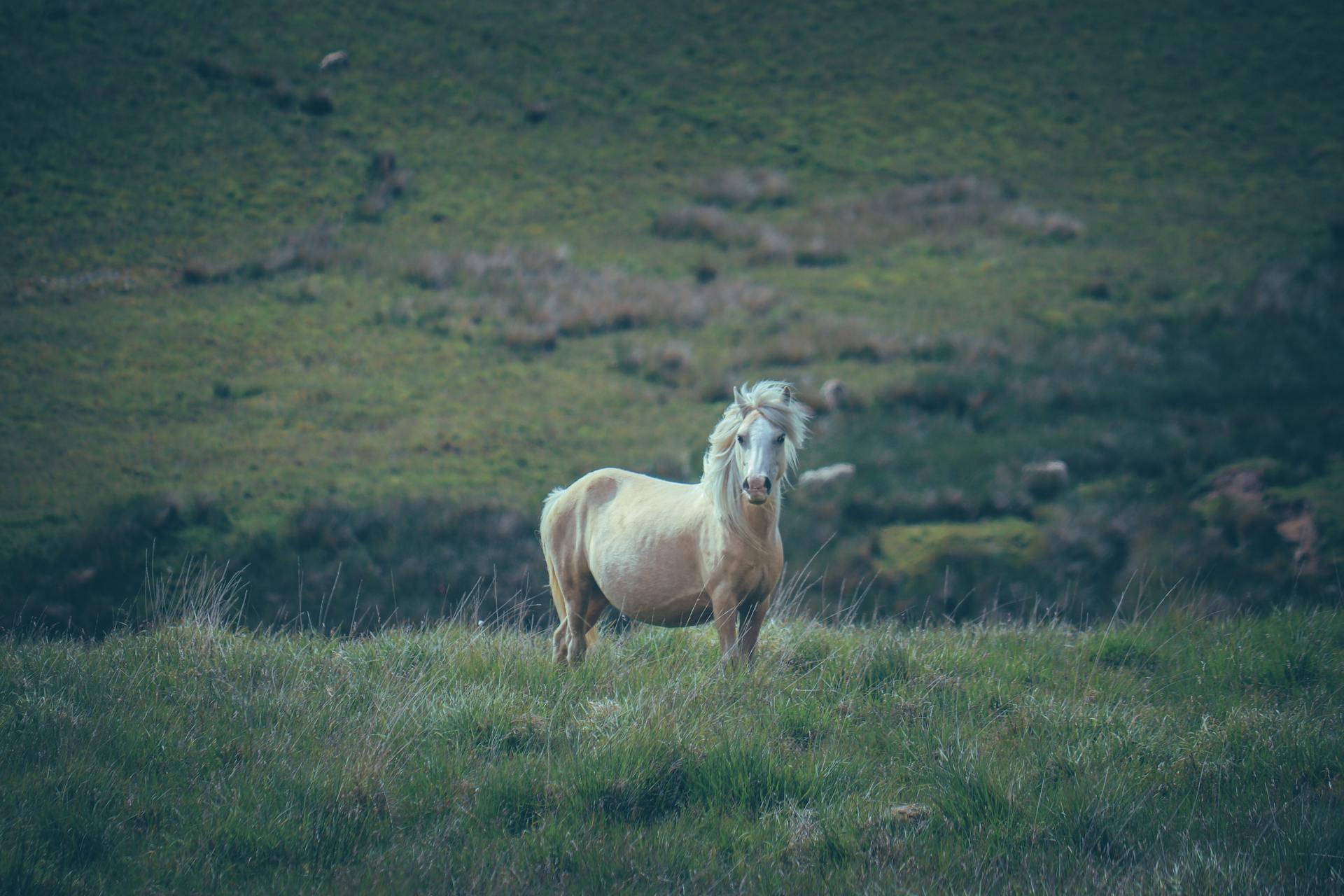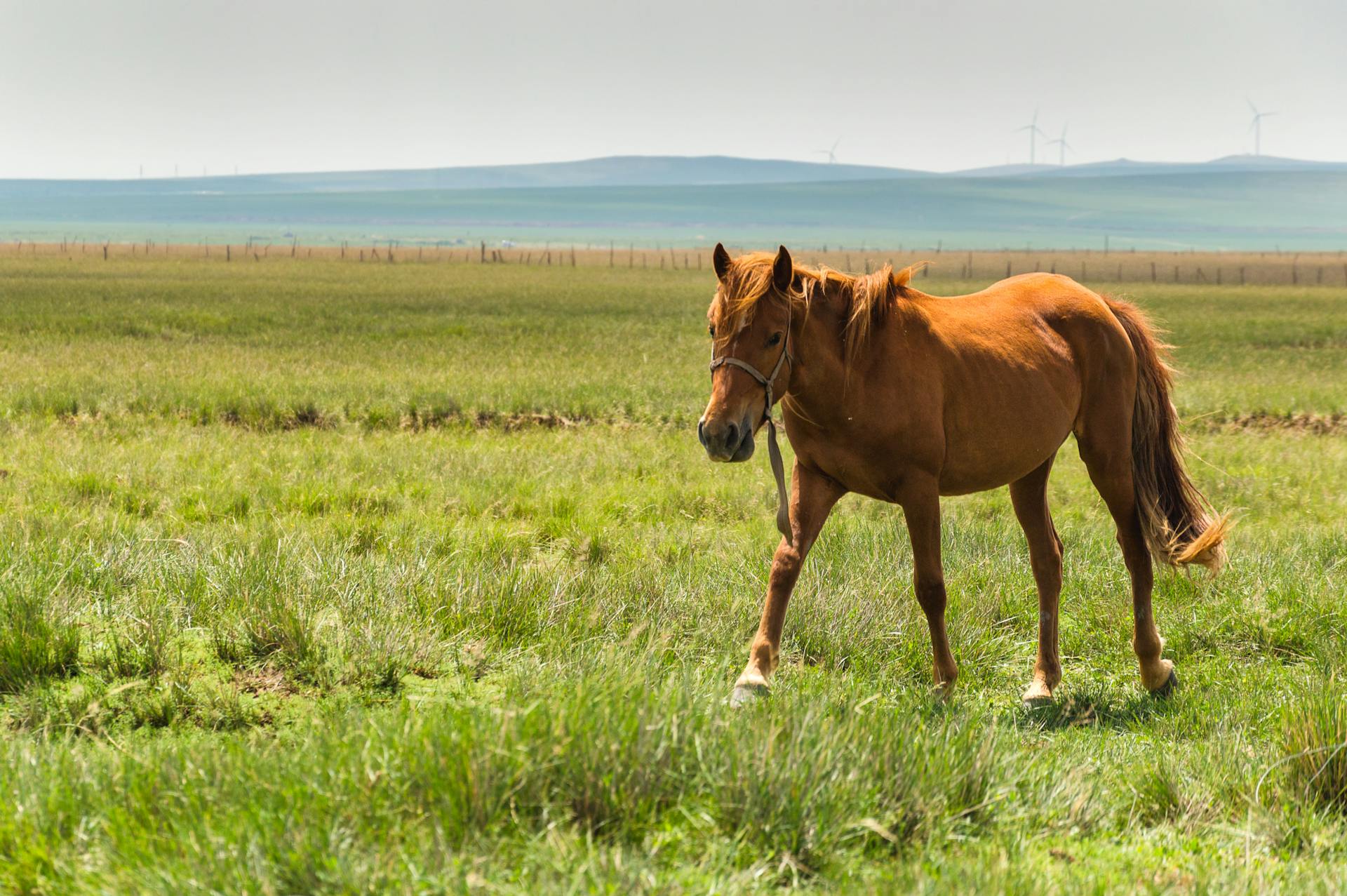
It's no secret that heat rises, so during the summer, the heat from the sun beating down on the roof of your horse trailer can make the inside of the trailer quite warm, even hot. The same is true in winter, when the heat from the inside of the trailer can escape through the roof. This is why it's important to insulate your horse trailer roof - to keep the inside temperature consistent, no matter what the weather is like outside.
There are a few different ways you can insulate a horse trailer roof. The most common way is to use fiberglass insulation. This can be found at most home improvement stores, and it's relatively easy to install. You'll just need to cut it to fit the dimensions of your roof, and then staple it in place. Another option is to use spray foam insulation. This can be a bit more difficult to install, but it will create a tight seal and can be more effective at preventing heat transfer.
Whichever insulation you choose, be sure to seal any gaps or cracks around the edges of the roof, as this will allow heat to escape. You can use caulk or weatherstripping to do this. And finally, cover the insulation with a reflective material, such as foil-faced bubble wrap, to reflect the heat of the sun and further reduce heat transfer.
What are some common materials used to insulate horse trailer roofs?
Horse trailers are exposed to a variety of weather conditions while on the road and while stationary. Often, the roof is the most exposed area of the trailer to the elements. To protect horses from extreme conditions, it is important to have an insulated roof on the trailer.
There are a variety of materials that can be used to insulate horse trailer roofs, depending on the climate and the level of protection desired. Some common materials used to insulate horse trailer roofs include:
- Styrofoam panels: Styrofoam is a lightweight, yet durable material that can provide good insulation for horse trailer roofs.
- Fiberglass insulation: Fiberglass is another common material used for insulating horse trailer roofs. It is available in rolls or as loose-fill insulation, and can be easy to install.
- Reflective foil: Reflective foil can be used to reflect heat away from the horse trailer roof, helping to keep the interior cooler in warm weather.
- Insulated blankets: Insulated blankets can be placed over the horse trailer roof to provide an extra layer of protection from the elements.
No matter what material is used to insulate the horse trailer roof, it is important to make sure that it is installed properly in order to provide the best possible protection for the horses.
Discover more: What Type of Brush Should Be Used to Brush the Horse's Tail?
How do you determine how much insulation is needed for a horse trailer roof?
One important factor to consider when insulating a horse trailer is the climate in which the trailer will be used. If the trailer will be used primarily in hot weather, then less insulation is needed than if it will be used primarily in cold weather. Another important factor to consider is the amount of time that the horses will be spending in the trailer. If the horses will only be in the trailer for a short period of time, then less insulation is needed than if they will be spending a long time in the trailer.
There are a variety of insulation materials that can be used for horse trailers, and the type of material that is used will also affect the amount of insulation that is needed. For example, fiberglass insulation is less effective than foam insulation, so more fiberglass would be needed to achieve the same level of insulation as foam.
The thickness of the insulation is also a factor to consider. The thicker the insulation, the more effective it will be. However, thicker insulation is also more expensive and more difficult to install. As such, it is important to strike a balance between the thickness of the insulation and the other factors mentioned above.
In general, a horse trailer roof needs at least four inches of insulation. This is the minimum thickness that is needed to provide adequate insulation in most circumstances. However, there are some cases where more insulation is needed. For example, if the trailer will be used in very cold weather or if the horses will be spending a long time in the trailer, then six inches or more of insulation may be needed.
The best way to determine the amount of insulation that is needed for a horse trailer is to consult with an insulation expert. They will be able to take into account all of the factors mentioned above and recommend the appropriate amount of insulation for your specific situation.
Explore further: What Is Used to Control a Horse?
What are the benefits of insulating a horse trailer roof?
One of the main benefits of insulating a horse trailer roof is that it helps to keep the inside of the trailer cooler in the summer. This is especially beneficial if you are hauling horses in an area where it gets very hot during the summer months. Another benefit of insulating a horse trailer roof is that it helps to keep the inside of the trailer drier in the winter. This is beneficial because it helps to prevent the horses from getting sick and also helps to keep the trailer from getting too cold.
How can you insulate a horse trailer roof if it is already installed?
If your horse trailer roof is already installed, you can still insulate it with a variety of materials. Polystyrene foam sheets, fiberglass insulation, and even recycled denim jeans can be used to help keep your horse trailer cooler in summer and warmer in winter. If you're not sure how to insulate your horse trailer roof, here are a few tips to get you started.
One way to insulate a horse trailer roof is to use polystyrene foam sheets. You can find these foam sheets at most hardware stores. They come in a variety of thicknesses, so you can choose the one that best fits your needs. To install the foam sheets, simply cut them to size and attach them to the roof with Liquid Nails or another construction adhesive.
Another way to insulate a horse trailer roof is to use fiberglass insulation. This insulation is available at most home improvement stores. It comes in rolls that you can cut to size. To install the fiberglass insulation, staple it to the underside of the roof. Make sure to overlap the seams of the insulation so that there are no gaps.
If you're looking for a more environmentally friendly option, you can insulate your horse trailer roof with recycled denim jeans. Denim is an excellent insulator, so it will help keep your horse trailer cool in summer and warm in winter. To install the denim insulation, simply cut the jeans to size and attach them to the roof with staples or construction adhesive.
No matter which insulation you choose, you'll need to seal the edges of the insulation to the roof. This can be done with caulk, weatherstripping, or another sealant. Once the insulation is installed and sealed, you'll notice a difference in the temperature inside your horse trailer.
Explore further: Why Was the Horse so Happy?
What are some tips for installing insulation on a horse trailer roof?
When it comes to horse trailers, the roof is one of the most important areas to insulate. Not only will this help keep your horse comfortable in all types of weather, but it will also help keep the trailer itself cooler in the summer and warmer in the winter.
There are a few different ways that you can insulate a horse trailer roof, but the most common and effective method is to use spray foam insulation. This type of insulation can be easily applied with a spray can, and it will adhere to the roof of the trailer very well.
Another thing to keep in mind when insulating a horse trailer roof is to make sure that the insulation is thick enough. The recommended thickness for spray foam insulation is about two inches. This will ensure that the horse trailer is well insulated and that your horse will be comfortable no matter what the weather is like outside.
Finally, you will want to make sure that the insulation is evenly distributed across the entire roof of the trailer. This can be done by spraying the insulation in a grid pattern, making sure to overlap each section by about six inches.
Once the insulation is applied, you should be able to see and feel a difference in the temperature inside the horse trailer. If done properly, the trailer will be much cooler in the summer and warmer in the winter. This will make a world of difference for your horse, and it will also help to extend the life of your horse trailer.
How do you ensure that the insulation will stay in place on a horse trailer roof?
It is important to ensure that the insulation on a horse trailer roof will stay in place for a number of reasons. First, insulation will help to keep the horses cool in summer months and warm in winter months. Second, insulation will help to keep the noise level down inside the trailer, which is important for the horses' well-being. Third, insulation will help to protect the horses from bad weather conditions. Fourth, insulation will help to keep the trailer cleaner by preventing dirt and dust from settling on the horses' coats.
There are a few things that you can do to ensure that the insulation on your horse trailer roof will stay in place. First, you can choose to use a product that is specifically designed for horse trailers. These products are typically made from a high-quality material that is resistant to slipping or falling off. Second, you can attach the insulation to the roof with screws or nails. This will help to keep it in place even if the trailer is moved around. Third, you can use a sealant to further secure the insulation in place. This will prevent it from shifting or coming loose over time.
By following these tips, you can ensure that the insulation on your horse trailer roof will stay in place and continue to protect your horses from the elements.
What are some common problems that can occur if a horse trailer roof is not properly insulated?
One of the most common problems that can occur if a horse trailer roof is not properly insulated is that the horse can overheat. If the horse is overheated, it can lead to dehydration, which can be very dangerous. horses can also suffer from heat stroke, which can be fatal.
Another common problem that can occur if a horse trailer roof is not properly insulated is that the horse can become too cold. If the horse is too cold, it can suffer from hypothermia, which can be very dangerous.
Another problem that can occur if a horse trailer roof is not properly insulated is that the horse can become uncomfortable. If the horse is uncomfortable, it may try to jump out of the trailer, which can lead to serious injuries.
It is very important to make sure that the horse trailer roof is properly insulated so that these problems do not occur. If you are not sure how to properly insulate the horse trailer roof, you should consult with a professional.
Additional reading: Hancock Horses Dangerous
What are some things to consider when choosing an insulation material for a horse trailer roof?
When it comes to horse trailers, one of the most important factors to consider is the roof. The roof is the first line of defense against the elements, and as such, it is important to choose an insulation material that will stand up to the challenges of the road. There are a number of factors to consider when choosing an insulation material for a horse trailer roof, including:
- R-value: The R-value is a measure of how well a material resists heat flow. The higher the R-value, the better the material is at insulating. When choosing an insulation material for a horse trailer roof, it is important to choose a material with a high R-value in order to keep the interior of the trailer cool in summer and warm in winter.
- Weight: Another important factor to consider when choosing an insulation material for a horse trailer roof is the weight of the material. Some insulation materials, such as fiberglass, are very heavy, which can make it difficult to move the trailer around. Other materials, such as spray foam, are much lighter and easier to work with.
- Installation: Some insulation materials, such as spray foam, require professional installation, while others, such as fiberglass, can be installed by the do-it-yourselfer. When choosing an insulation material for a horse trailer roof, it is important to consider the level of difficulty involved in installation.
- Cost: Of course, cost is always a factor to consider when choosing any type of product. When it comes to insulation materials, there is a wide range in cost, from relatively inexpensive materials such as fiberglass to more expensive materials such as spray foam. When choosing an insulation material for a horse trailer roof, it is important to balance cost with performance in order to get the best value for your money.
How can you tell if the insulation in a horse trailer roof is adequate?
There are a few key factors you can look for when assessing the insulation in a horse trailer roof. First, check to see if the horse trailer is equipped with an awning. If so, this can provide some shade and protection from the sun for your horse during hot weather. Secondly, look for any signs of condensation on the ceiling or walls of the trailer. This may be an indication that the insulation is not adequate. Finally, you can also ask the previous owner or horse trailer dealer about the trailer's insulation. They should be able to provide you with more detailed information.
Consider reading: What Would I Look like as a Horse?
Frequently Asked Questions
Do you need to insulate a horse trailer?
While it’s true that you don’t need to insulate a horse trailer, doing so can significantly reduce your overall energy bills and improve the comfort and safety of your horse. Insulation not only prevents heat build-up, but also helps trap moisture and insulation noise, both of which can be annoying distractions while on the road. How do I insulate my horse trailer? There are a few different ways to insulate a horse trailer. You can use fiberglass batt insulation in the walls and ceiling, spray foam, or an airtight layer of plastic wrap. The most important thing is to follow the manufacturer’s instructions precisely to ensure proper installation and retention of insulation. What are some common mistakes people make when insulating a horse trailer? The biggest mistake people make when insulating their horse trailers is not trying at all. Many people believe that they don’t need to insulate because horses don’t
How do I Stop my Trailer from overheating?
There is no one-size-fits-all answer to this question as the best way to stop your trailer from overheating may vary depending on the make and model of your trailer, how much insulation is present, the outside temperature, and your lifestyle. However, some tips that may help reduce the amount of heat that is poured into your trailer include: Insulating on the top of your trailer’s hollow frame ribs can reduce the effect of thermal bridging. These thermal breaks, are basically non-conductive materials (i.e. insulation) placed in the pathway of a thermal bridge to block the flow of heat. Avoid running your air conditioner while you are camping or traveling; this will only put more demand on your battery and create extra heat in your trailer. If you do have to run your AC unit while camping or traveling, try to turn it off as soon as you reach your destination so it doesn’t continue using energy while you
How to keep your horse’s Trailer Cool while driving?
The easiest way to keep your horse trailer cool is to open up all of the windows and think about how you can direct air flow around your rig. Make sure your back fans are pointed out the window to help circulate air, and maybe consider placing a fan in front of the driver’s seat as well.
How to choose the right horse trailer for your horse?
There is no one right horse trailer for every horse, and it's important to choose the right one for your needs. To get started, try thinking about what you're looking for in a trailer: how much space you want, how many horses you can transport at once, and whether you need a commercial or recreational vehicle. After that, it's important to consider the different types of horse trailers on the market: wired or wireless bridles? ground level or lifted? Type of roof (tarp, canopy)? And finally, the price range.
What is the best insulation for a travel trailer?
There isn't a definitive answer to this question since it depends on your needs and goals when traveling. Some people choose spray foam insulation because it's a lighter option, while others choose fiberglass insulation for its traditional performance benefits. Ultimately, the best insulation for your travel trailer will depend on the specific material and features of your trailer.
Sources
- https://allanimalsfaq.com/horse/how-to-insulate-a-horse-trailer-roof-2/
- https://justdownsize.com/how-do-you-insulate-a-horse-trailer-tack-room/
- https://www.syneffex.com/positive-reviews/horse-trailer-all-weather-insulation/
- https://www.discoveryfloats.com.au/blog/roof-insulation-for-horse-float
- https://horsetrailerworld.com/forum/forums/thread-view.asp
- https://horsetrailerworld.com/forum/forums/thread-view.asp
- https://www.youtube.com/watch
- https://www.doubledtrailers.com/what-is-the-safest-roof-material-to-use-on-a-horse-trailer/
- https://www.doubledtrailers.com/extreme-temperatures-horse-trailer/
- http://www.aandr-equine.com/index_files/Page293.htm
- https://horsetrailerworld.com/forum/forums/thread-view.asp
- https://www.doubledtrailers.com/three-ways-insulation-matters-to-horse-safety/
- https://www.lowes.com/n/calculators/roll-insulation-calculator
- https://www.jm.com/en/homeowner-insulation/calculating-how-much-insulation-to-buy-for-your-project/
- https://www.youtube.com/watch
- https://stablemats.ie/horse-box-matting/
- https://horsetrailerworld.com/forum/forums/thread-view.asp
- https://www.cargotrailercamping.com/if-you-arent-insulating-your-trailer-youre-wrong/
- https://nsnsearch.com/qna/how-do-you-insulate-a-horse-trailer/
- https://justdownsize.com/how-do-you-finish-a-horse-trailer-living-quarters/
- https://www.petplace.com/article/horses/general/how-to-maintain-your-horse-trailer/
- https://instrideedition.com/down-the-road-keeping-your-horses-healthy-trailering-in-the-heat/
- https://nationwideroofingandcladding.ie/fibreglass-roof-problems/
- https://trucksauthority.com/common-problems-with-atc-trailers/
- https://www.doubledtrailers.com/choosing-proper-materials-for-your-horse-trailer/
- http://ecotiteuk.weebly.com/blog/3-things-to-consider-before-choosing-an-insulation-material
- https://mhcgutters.com/things-to-consider-before-choosing-a-roofing-material/
- https://www.horsejournals.com/acreages-stables/transport-equipment/your-horse-trailer-winter
Featured Images: pexels.com


